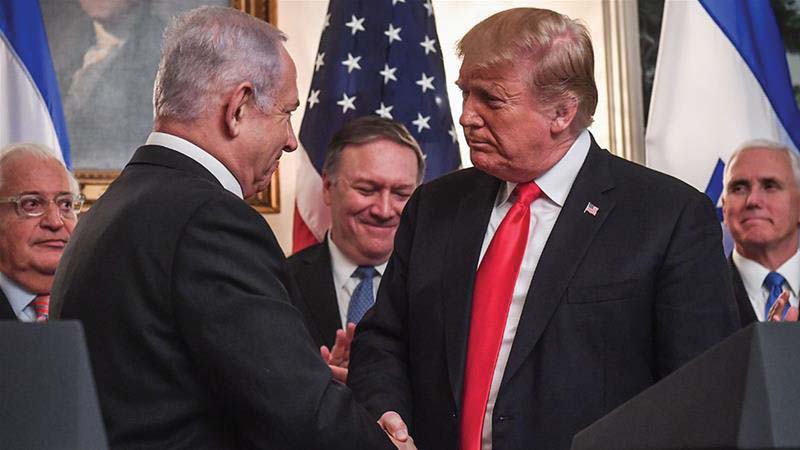The Golan Heights: An International Blunder
President Trump recently signed a presidential proclamation that the United States will acknowledge Israeli sovereignty over the Golan Heights – something past administrations and the international community have avoided. The Golan Heights is a controversial region strategically located along Israel’s northern border with Syria. In 1967, Israel annexed the region from Syria. Trump’s proclamation is a strategic political decision for Israeli Prime Minister Benjamin Netanyahu, but it will have disastrous consequences for the Middle East and U.S. foreign policy.
From a strategic perspective, Trump’s decision benefits both himself and Netanyahu in upcoming elections. For President Trump, this decision underscores his administration’s support for Israel, which means more votes from pro-Israel Americans, a group he has struggled to impress in the past. Only 24% of Jewish-Americans voted for Trump, and while not all Jewish-American voters are hawkish on Israel, his recent actions could be interpreted as an effort to turn that number in his favor.
In Israel, it is now highly probable that Netanyahu will be reelected, which was previously considered unlikely. Netanyahu is under threat of indictment for corruption, has aligned himself with a Jewish-supremacist party, and has repeatedly decried reporting critical of him as “fake news.” The situation has deteriorated to the point that a new party, Blue and White, headed by a former Chief of Staff of the Israel Defense Forces and a former Minister of Finance, was formed specifically to challenge Netanyahu.
However, Trump’s announcement has given Netanyahu’s plan to annex portions of the West Bank viability and bolstered his image as a legitimate leader who is a strong advocate for Israel’s interests. This boost in public persona for Netanyahu may give him the edge he needs in the upcoming tight race.
It is undeniable to say that the president’s decision was influenced by political opportunism rather than national interest and international law.
Such a dramatic shift in U.S. foreign policy could result in grave consequences. President Trump has essentially endorsed Israel’s action illegal annexation of the land from Syria. The United Nations has formally rejected Israel’s occupation of the Golan Heights and the area is still considered Syrian territory under international law. Thus, the U.S. has endorsed Israel’s violation of international law.
Along with the president’s disregard of international opinion and endorsement of illegal seizure of land, his decision further alienates surrounding Middle Eastern states. While Israel views this positively, the rest of the world does not. This poses two potential problems: first, it will undermine President Trump’s peace proposal for Israel and Palestine, and second, it will worsen tensions throughout the Middle East.
The president’s endorsement of Israel’s annexation of the Golan Heights could also result in Israel’s annexation of the West Bank. Since the president’s statement also contradicted the rest of the international community, he has now given Israel stronger support and justification for Israel annexing more land. In fact, Prime Minister Benjamin Netanyahu has already said he will annex Israeli settlements within the West Bank, if elected. Ultimately, Israel annexing more land with support from the U.S. could further destabilize the Middle East and hinder peace negotiations between Israel and Palestine.
The president’s validation of Israel’s sovereignty in the area and flouting of international law could also empower other authoritarian leaders to annex lands against the wishes of the international community. For example, his actions could embolden Russian President Vladimir Putin’s defense of his country’s annexation of Crimea from Ukraine in 2014.
On the whole, President Trump is making a disastrous decision by supporting Israeli sovereignty over the Golan Heights. While the move may be politically strategic for Trump at home, it goes against international consensus and law. Most importantly, the decision undermines U.S. foreign policy and brings tension into an already unstable region.






